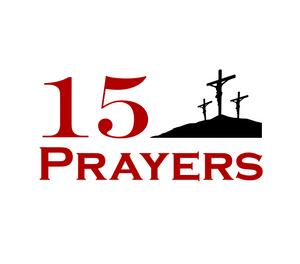
Book XII
Of the creation of angels and men, and of the origin of evil.
Chapter 1
That the nature of the angels, both good and bad, is one and the same.
Chapter 2
That there is no entity? contrary to the divine, because nonentity seems to be that which is
wholly opposite to Him who supremely and always is.Chapter 3
That the enemies of God are so, not by nature but by will, which, as it injures them, injures a
good nature; so if vice does not injure, it is not vice.Chapter 4
Of the nature of irrational and lifeless creatures, which in their own kind and order do not
mar the beauty of the universe.Chapter 5
That in all natures, of every kind and rank, God is glorified.
Chapter 6
What the cause of the blessedness of the good angels is, and what the cause of the misery of
the wicked.Chapter 7
That we ought not to expect to find any efficient cause of the evil will.
Chapter 8
Of the misdirected love whereby the will fell away from the immutable to the mutable good.
Chapter 9
Whether the angels, besides receiving from God their nature, received from Him also their good
will by the Holy Spirit imbuing them with love.Chapter 10
Of the falseness of the history which allots many thousand years to the world’s past.
Chapter 11
Of those who suppose that this world indeed is not eternal, but that either there are numberless
worlds, or that one and the same world is perpetually resolved into its elements, and renewed at the conclusion of fixed cycles.Chapter 12
How these persons are to be answered, who find fault with the creation of man on the score
of its recent date.Chapter 13
Of the revolution of the ages, which some philosophers believe will bring all things round again, after a certain fixed cycle, to the same order and form as at first.
Chapter 14
Of the creation of the human race in time, and how this was effected without any new design
or change of purpose on God’s part.Chapter 15
Whether we are to believe that God, as He has always been sovereign Lord, has always had
creatures over whom He exercised His sovereignty; and in what sense we can say that the creature has always been, and yet cannot say it is co-eternal.Chapter 16
How we are to understand God’s promise of life eternal, which was uttered before the
“eternal times”.Chapter 17
What defense is made by sound faith regarding God’s unchangeable counsel and will, against
the reasonings of those who hold that the works of God are eternally repeated in revolving
cycles that restore all things as they were.Chapter 18
Against those who assert that things that are infinite?! cannot be comprehended by the
knowledge of God.Chapter 19
Of worlds without end, or ages of ages.
Chapter 20
Of the impiety of those who assert that the souls which enjoy true and perfect blessedness, must yet again and again in these periodic revolutions return to labour and misery.
Chapter 21
That there was created at first but one individual, and that the human race was created in him.
Chapter 22
That God foreknew that the first man would sin, and that He at the same time foresaw how
large a multitude of godly persons would by His grace be translated to the fellowship of the
angels.Chapter 23
Of the nature of the human soul created in the image of God.
Chapter 24
Whether the angels can be said to be the creators of any, even the least creature.
Chapter 25
That God alone is the Creator of every kind of creature, whatever its nature or form.
Chapter 26
Of that opinion of the Platonists, that the angels were themselves indeed created by God, but
that afterwards they created man’s body.Chapter 27
That the whole plenitude of the human race was embraced in the first man, and that God there
saw the portion of it which was to be honoured and rewarded, and that which was to be
condemned and punished.Chapter 28
In the first man is the beginning of all mankind, and of the two cities.

